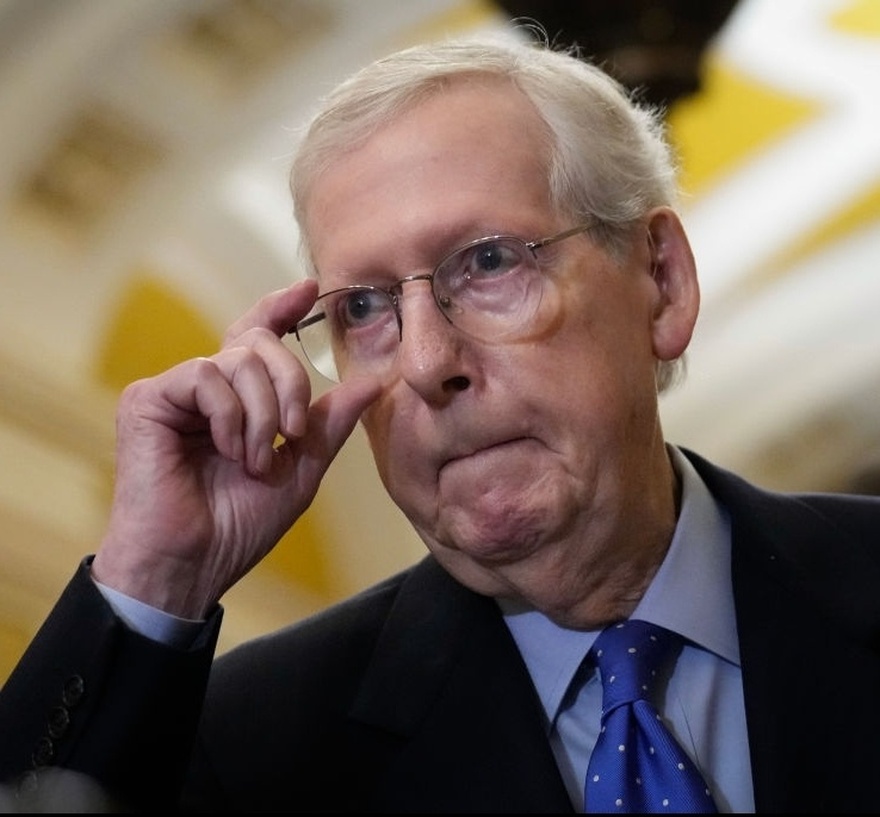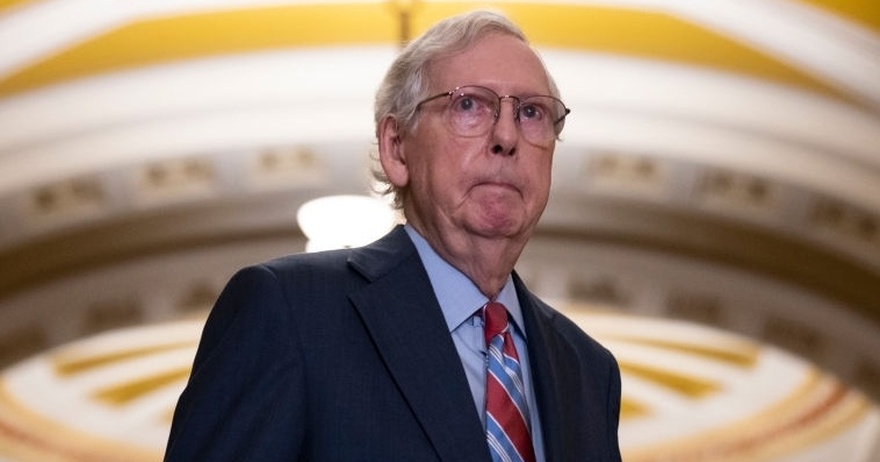Senate Republican Leader Mitch McConnell – the longest-serving Senate leader in U.S. history – announced on his 83rd birthday on Thursday that he will not seek re-election in 2026, bringing an end to a four-decade tenure that has shaped the Republican Party and the nation’s judiciary.
McConnell, who first won his Kentucky Senate seat in 1984, took the reins as Senate Republican leader in 2007 and held the role until early 2025.
Over the course of his leadership, he served in both the majority and minority under four different administrations.
“Representing our commonwealth has been the honor of my lifetime. I will not seek this honor an eighth time,” McConnell declared from the Senate floor. “My current term in the Senate will be my last.”
His departure marks a defining moment for the Republican Party, which has shifted dramatically from the brand of traditional conservatism McConnell championed to the more populist, Trump-driven movement of today.
His relationship with former President Donald Trump has been tense, though McConnell supported Trump’s White House bids in 2016 and 2020.

After the January 6 Capitol riot, McConnell made headlines by condemning Trump’s role, saying the former president was “practically and morally responsible for provoking the events of the day” and calling his actions a “disgraceful dereliction of duty.”
Despite those criticisms, McConnell later voted to acquit Trump in the impeachment trial and endorsed him again for the 2024 election after he secured the GOP nomination.
A Legacy of Judicial Influence and Partisan Battles
McConnell’s most lasting impact comes from his role in reshaping the federal judiciary.
As Senate majority leader from 2015 to 2021, he played a pivotal role in confirming three conservative Supreme Court justices, including blocking President Barack Obama’s 2016 nominee, Merrick Garland, from receiving a hearing — an unprecedented move that cleared the path for Trump to appoint Justice Neil Gorsuch.
In total, McConnell helped confirm 234 federal judges during Trump’s first term, cementing a conservative influence on the judiciary that will last for generations. He has previously described this effort as his proudest achievement.
Beyond the courts, McConnell was instrumental in passing Trump’s 2017 tax reform bill, the most significant legislative accomplishment of Trump’s presidency.
His leadership style during the Obama years earned him the nickname “Dr. No”, as he led Senate Republicans in blocking much of Obama’s agenda, including the Affordable Care Act. But his obstructionist approach shifted somewhat under President Joe Biden, when he helped negotiate bipartisan deals on infrastructure spending and semiconductor investments through the CHIPS and Science Act.
Breaking with Trump on Foreign Policy
In recent years, McConnell has turned his focus toward foreign policy, positioning himself as a defender of strong U.S. engagement in global affairs.
He has frequently clashed with Trump’s “America First” ideology – particularly when it comes to aid for Ukraine – arguing that American leadership is essential for global stability.
McConnell has also been a steadfast defender of the 60-vote filibuster threshold in the Senate, resisting calls — even from Trump — to abolish it during the GOP’s control of the chamber.
A Long-Anticipated Exit
McConnell’s retirement had been widely expected, particularly after recent health concerns.

He suffered multiple on-camera freeze-ups in 2023 and used a wheelchair in the Senate after a serious fall. His leadership has also been increasingly out of step with the party’s Trump-aligned MAGA movement, further signaling his eventual departure.
With McConnell stepping aside, the fight for the future of Senate GOP leadership is already taking shape. His exit marks the end of an era in Republican politics —one defined by calculated strategy, judicial maneuvering, and a steadfast belief in the power of the Senate as an institution.






























